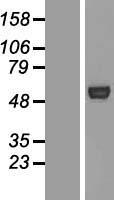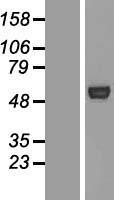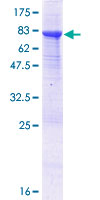order histories, retained contact details for faster checkout, review submissions, and special promotions.
Forgot password?
order histories, retained contact details for faster checkout, review submissions, and special promotions.
Location
Corporate Headquarters
Vector Laboratories, Inc.
6737 Mowry Ave
Newark, CA 94560
United States
Telephone Numbers
Customer Service: (800) 227-6666 / (650) 697-3600
Contact Us
Additional Contact Details
order histories, retained contact details for faster checkout, review submissions, and special promotions.
Forgot password?
order histories, retained contact details for faster checkout, review submissions, and special promotions.
AUTL1 / ATG4C
autophagy related 4C, cysteine peptidase
Cysteine protease required for the cytoplasm to vacuole transport (Cvt) and autophagy. Is not essential for autophagy development under normal conditions but is required for a proper autophagic response under stressful conditions such as prolonged starvation (By similarity). Cleaves the C-terminal amino acid of ATG8 family proteins MAP1LC3 and GABARAPL2, to reveal a C-terminal glycine. Exposure of the glycine at the C-terminus is essential for ATG8 proteins conjugation to phosphatidylethanolamine (PE) and insertion to membranes, which is necessary for autophagy. Has also an activity of delipidating enzyme for the PE-conjugated forms.
| Gene Name: | autophagy related 4C, cysteine peptidase |
| Synonyms: | ATG4C, AUTL3, APG4-C, APG4C, AUTL1, Autophagin-3, APG4 autophagy 4 homolog C, Cysteine protease ATG4C |
| Target Sequences: | NM_032852 NP_116241.2 Q96DT6 |
Publications (1)







If you do not find the reagent or information you require, please contact Customer.Support@LSBio.com to inquire about additional products in development.










